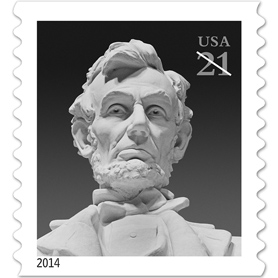Note my presentation of historical evidence does not mean I am advocating all of the theologies expressed. I have serious disagreements with some things Reverend Carey said at other times in this sermon from June 1, 1865, which was given over a half year after the sermon where he told of the conversion testimony. Yet we can learn from certain folks in history even if we have disagreements. And we can all continue learning more from God through His revelations given in Scripture.
Here are two sentences from Reverend Carey: “The mourning was not simply formal, but sincere and deep. It
was not confined to the great cities, where many thousands could gather to
witness the imposing obsequies and look upon the remains of the deceased President,
but extending throughout the land, and manifesting itself in a very marked way
at all the villages and stations through which the funeral cortege passed in
its long course to the place of burial; people of every place along the route, gathering
at the stations, in great numbers and by means of bonfires, the tolling of bells,
the singing of dirges, the scattering of flowers in the Funeral Car, and other appropriate
acts, expressing their love and reverence for the departed good man and Savior
of his country, and their deep sorrow in view of his untimely death.”[1]
And I repeat from the previous post Lincoln’s key quote in response to an African-American man calling him the “great Messiah,” as written by Carl Sandburg: “Don’t kneel to me.
You must kneel to God only and thank him for your freedom.”[2]
Hunter Irvine

United States Postal Service stamp issued on February 12, 2014.
Carol Highsmith took the original photograph, and Derry Noyes was the Art Director for the 21 cent stamp.

United States Postal Service stamp issued on February 12, 2014.
Carol Highsmith took the original photograph, and Derry Noyes was the Art Director for the 21 cent stamp.
[1] Isaac E. Carey, “Abraham
Lincoln. The Value to the Nation of his Exalted Character,” sermon preached on June
1, 1865, at the First Presbyterian Church of Freeport, Illinois,
[2] Carl Sandburg, Abraham
Lincoln: The Prairie Years and The War Years One-Volume Edition (New York:
Harcourt, Inc., 1954), 684.


